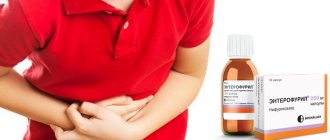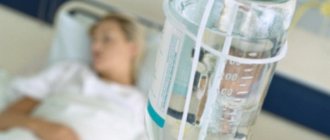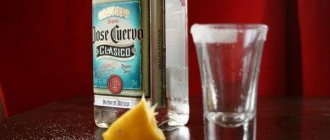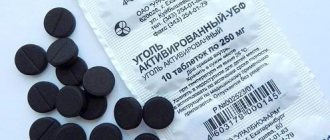Almost always, any cold-type viral diseases involve additional poisoning of the body.
In addition to the fact that a person suffers from the disease itself, he also has to deal with intoxication from the flu. Those who often fall victim to viral respiratory diseases experience body aches and constant nausea. These two signs belong to the category of consequences of poisoning. They make themselves felt at the initial phase of the infectious process. Such consequences are a consequence of the incipient intoxication of the body against the background of the active reproduction of viral agents.
Symptoms and signs of viral intoxication
Most often, infectious diseases are accompanied by symptoms of general intoxication. ARVI is no exception. Fever, constant headache, joint pain, body aches, vomiting and nausea are symptoms of toxic damage to the body that explain the person’s poor health.
We also recommend reading:
Caution: fungal infection of the throat and tonsils! Bronchitis and tracheitis: symptoms and treatment Determination of the bronchial asthma code according to ICD 10 ARVI. Incubation period. Stages of the disease
Almost all common seasonal viruses cause such complaints, expressed to a certain degree. But the clear leader is the flu.
In addition to the above complaints, as a rule, there are:
- dizziness ; _
- general weakness;
- muscle pain;
- decreased sense of taste and loss of appetite;
- lower blood pressure.
In 50% of cases with ARVI, these symptoms are ahead of the typical manifestations of a cold: sore throat, cough, runny nose. During severe illness, toxic shock , which is accompanied by a sharp decrease in blood pressure.
Typical symptoms of poisoning
The classic clinical picture of influenza intoxication is not much different from poisoning of the body in other infectious diseases of this kind. It is expressed in the following indicators:
- headache,
- heaviness in the head
- dizziness,
- weakness,
- muscle flaccidity,
- joint pain,
- insomnia,
- exacerbation of renal failure,
- liver failure,
- profuse sweating.
But this is characteristic of a mild or moderate stage of the disease. If a person has been diagnosed with severe poisoning, then in addition to the above symptoms, he will also experience:
- interruptions in heart rhythm;
- gagging;
- changes in blood pressure;
- damage to the lining of the brain;
- convulsions.
This process lasts about a week. The patient feels worst somewhere on the third day after the illness.
Causes of intoxication
Almost all systems and organs in the human body are exposed to infectious toxic damage, but the central nervous system is most affected. It is even more difficult for children, especially young ones, to endure intoxication of the body. They have not yet fully developed mechanisms to resist the disease. Intoxication can be caused directly by viral particles , decay products of disease-infected cells of the human body and macrophages - immune defense cells.
The result of the toxic effects of this is the impact of pathogenic active biological substances on vascular tissue, which leads to edema and increased permeability.
Modern diagnostic methods
Regardless of whether the patient has intoxication due to the flu, or any other type of poisoning of this kind, a thorough medical examination will be required to establish the exact cause. Once the results are received, they are attached to the current diagnosis to provide a complete clinical picture for the provision of further therapeutic and restorative therapy.
Today, there are two main ways to diagnose the exact cause of intoxication:
- clinical,
- laboratory.
In the first case, the determination is made on the basis of indicators that relate to a strictly defined poison. And the second option uses a system for comparing poisons or metabolites in biological substrates. At the same time, accompanying analyzes of the biochemical spectrum are additionally carried out in laboratory conditions. As a result, the attending physician will be able to determine in the shortest possible time not only the poison, but also the changes inherent to it that are occurring or will occur in the organs.
The pathomorphological direction is highlighted in a separate column. This segment is characterized by the elucidation of special symptoms from the morphological area of intoxication both during the life and after the death of the victim.
How to detoxify the body at home?
The intensity of treatment measures will depend directly on the severity of intoxication in the body. In mild situations, which almost always occur with a certain type of acute respiratory viral infection, treatment can be performed at home . The treatment algorithm looks like this.
Mode
Provide rest to the patient. Semi-bed rest or bed rest with limited TV viewing and full sleep is recommended The room in which the patient is located must be ventilated periodically. This will reduce the concentration of viral microparticles and intoxication products in the air, which are excreted in sweat and inhaled in the air. The patient can be in the room - he just needs to be well covered. When the air is dry, which most often happens in winter in heated rooms, you can hang wet towels on the radiators. If money allows, then buy a special humidifier.
Diet
In case of intoxication, heavy fried and fatty foods are prohibited. The best option is a dairy and plant-based diet that is gentle on the liver and gastrointestinal tract. It is necessary to limit the consumption of meat foods. Preference should be given to products made from cottage cheese and cereal dishes. You should not get carried away with complex culinary preparations, as well as sweets. It is very important to be gentle with the liver , since this organ is the main tool in the body for removing toxins of various origins during intoxication.
If the patient refuses to eat, there is no need to force feed him; it is better to provide the person with a sufficient volume of fluid . A good folk remedy that strengthens the body’s strength is low-fat chicken broth, which you can simply drink. Along with the broth, you can offer a dried piece of bread.
Drinking regime
With the help of adequate water load, you can independently cope with toxins without resorting to pharmaceuticals. Compotes and fruit drinks made from dried and frozen berries, dried fruits, and even simple purified drinking water cope well with the tasks. Decoctions and infusions of dried fruits have diuretic properties and also contain essential microelements.
Decoctions of rose hips, viburnum, raspberries and linden help reduce intoxication and have a pronounced diaphoretic property. Drinking warm mineral waters will further contribute to the dilution of pathological discharge and sputum from the nose. Water must be still ! For an adult, the volume of water load must reach at least 2 liters.
Treatment of viral poisoning
According to the nature of the course, intoxication in a viral disease is often acute. It develops quickly and does not last long. The body copes with the load on its own and the person’s well-being practically does not suffer. In this case, it is enough to take antiviral drugs, stay in bed and drink enough fluids. All organ systems function without consequences after the disease subsides. But that's the best case scenario.
Severe infection requires additional medical care. How to relieve intoxication from ARVI in this case?
- What's important to remember? Severe infections are treated in a hospital setting. The first thing doctors prescribe is detoxification therapy. Intravenous fluid administration from 500 ml to 2 liters or more per day along with diuretics. During intoxication, there is a large loss of water along with sweat, they need to be replaced, this significantly improves the course of the disease.
- Antiviral drugs are prescribed. During the height of the disease, they will not bring much benefit, that is, they will no longer prevent the virus from entering the respiratory tract. But they can alleviate the course of the disease.
- If intoxication of the body due to ARVI is in full swing, treatment is symptomatic. This therapy includes so-called substances on demand. Inhalations, antipyretic drugs, antibacterial drugs.
- Vitamins must be prescribed, primarily vitamin C, it protects blood vessels and helps cope with infection.
How to reduce intoxication during ARVI at home
When the first symptoms of the disease appear, you must consult a specialist! He will prescribe appropriate treatment and tell you how to relieve intoxication from ARVI. Having assessed the symptoms, the doctor will individually prescribe treatment and recommend taking antiviral drugs that will help the immune system quickly suppress the multiplication of the virus.
During ARVI, it is important to help the body fight the virus. What does the prevention of intoxication of the body during ARVI include?
- The main way to combat poisoning of the body during ARVI is to remove decay products by drinking plenty of fluids. Fortified juices, compotes, herbal teas, mineral water without gases will help quickly remove toxins from the patient’s body.
- Another method of combating intoxication is to eat easily digestible food. During illness, a person does not feel like eating at all, but then the body loses strength and ability to fight the virus. Eating light, liquid, warm food, for example, low-fat broth with crackers, will help restore strength and create an additional supply of strength. The immune system will receive additional energy reserves to fight poisoning. Drinking and eating will not cure a person from a viral infection, but will help the body cope with intoxication due to ARVI.
- Absorbents will help remove toxins from an organism weakened by disease - their choice in pharmacies is quite wide; you can purchase simple activated carbon.
- To protect the liver, which takes on the main burden of neutralizing toxins, it is good to take a course of herbal hepatoprotectors based on oats and milk thistle. They will improve the functioning of liver cells and bring significant relief.
- Immunomodulators stimulate the body's antiviral defense, the most famous is Interferon.
- Folk remedies will also come in handy: rosehip decoction, tincture of eleutherococcus, ginseng, peony - they will give a person tone and help him get into a working rhythm after an illness.
Drug treatment for intoxication
To do this, antiviral agents are prescribed that act on the virus itself (Lavomax, Remavir, Arbidol). The second group of medical products are stimulants for the body’s synthesis of its interferon (mefenamic acid).
Prescribing antibiotics on your own is strictly not recommended . This group of drugs is necessary only if there are symptoms of bacterial complications. Their unreasonable use depletes the immune system and causes the body to become resistant to this treatment in the future.
Naturally, elevated temperature aggravates poor health. However, fever is a protective reaction of the body. During high temperatures, interferon begins to be intensively produced, which is involved in immune reactions.
Sorbents can help remove toxins: white coal, Enterosgel, Polysorb, Atoxil. You can even buy simple activated carbon.
Recently, complex remedies for symptomatic treatment, which contain ascorbic acid, paracetamol or antiallergic substances - phenylephrine and pheniramine, have become very popular. They are sold under various brand names: Theraflu, Fervex, Coldrex, etc.
Their main advantages:
- Dosages were selected taking into account the main indication: treatment of ARVI.
- Quickly remove the unpleasant symptoms of influenza and other colds: fever, aches, nasal congestion, sore throat and muscle pain.
- Convenient form of production in the form of a hot drink with a pleasant aftertaste. Allows you to carry out treatment comfortably even at work and take one product instead of three.
An important role belongs to ascorbic acid - vitamin C. It reduces the phenomenon of edema and reduces the permeability of the vascular wall.
Treatment for intoxication of the body using traditional methods
Treatment must be comprehensive ; in addition to developing a diet and taking medications, you can add folk remedies. Decoctions and infusions based on medicinal herbs will speed up the release of toxic elements from the body. Let's look at the most popular time-tested recipes:
- Poisoning can be cured with rosehip decoction . To prepare it, you need to add 50 grams to one liter of clean water. berries and cook for 3 hours. The broth is filtered, the container is moved to a warm place, and it is allowed to brew for another 5 hours. Then bring the infusion to a boil, add honey in the amount of 50 grams to the medicinal composition. This mixture is taken in the morning and evening, 200 ml.
- A decoction of viburnum can help perfectly ; to prepare it, you need to pour 50 grams of water into a liter of water. berries (fruits can be replaced with viburnum leaves in the amount of 100 g). Having brought this mixture to a boil, keep it on low heat for one hour, filter and cool. The intake is carried out between meals; throughout the day you need to drink the entire volume of the prepared composition.
- Aloe leaves can be used against intoxication. The leaves of this plant are cut off a day before preparing the composition and placed in the refrigerator, wrapped in film. After 300 gr. The plants are finely chopped, honey is added in a volume of 200 grams, mixed and the mixture is allowed to brew for a week. Use 50 grams before meals.
- At home, a tincture made from black currant leaves can help remove toxins. To create the product, blackcurrant leaves are finely chopped, transferred to a half-liter bottle, and a vodka solution is added (water and vodka are taken in equal parts). The jar is tightly sealed, placed in a dark place, the composition is ready for use after three days. To obtain a single dose of the medicinal composition, 100 ml of water is mixed with 20 drops of the product. The medicine must be taken half an hour before meals in the morning and evening. Please note that this recipe is contraindicated for children and pregnant women.
- In the summer, watermelon can help improve the condition; its rinds must be washed, cut into small pieces, transferred to a container, adding for every 100 grams. crust liter of water. All this needs to be cooked for one hour. After the crust is removed, juice is added to the composition, which is squeezed out of 2 lemons. The medicine is taken in any volume.
Forecasts
Influenza is quite easy to treat if you deal with it correctly from the first days of its occurrence. Here you should not neglect medical recommendations, which do not exclude alternative treatment. You can combine traditional and traditional medicine to improve forecasts for developments.
Influenza intoxication is a side effect of the immune system, which eliminates the source of infection. Blood washes the affected tissues and removes decayed pathogenic microorganisms and dead leukocytes from the battlefield. The causative agents of all types of influenza are usually localized in the upper and middle respiratory tract and provoke the development of tracheitis.
Influenza is characterized by severe intoxication because viral agents multiply in large numbers and at record speed. The body needs a lot of strength to stop the disease and transform it into a safe form. Infection with influenza viruses is accompanied by a short-term increase in body temperature to 39-40 degrees. With class A pathogens, the high temperature lasts no more than 5 days, usually one or two days. With class B viruses, chills and fever can last from 5 to 9 days. Parainfluenza viruses cause a slow increase in temperature, the highest levels are achieved by the 3-4th day of the disease and amount to 38 - 38.5 degrees.
Symptoms of intoxication with influenza
At its core, intoxication is a common poisoning caused by the formation of toxic substances within the body's systems. Depending on the age of the victim, the severity of the disease and the individual characteristics of the body, intoxication can be more or less pronounced. The best results in supporting the immune system are obtained by using antiviral drugs in the first two days from the moment of infection. This is what allows you to minimize unpleasant symptoms and speed up recovery. Flu intoxication includes symptoms such as:
- muscle fatigue, weakness, aching bones, tremors, joint pain;
- heaviness and pain in the head;
- nausea and vomiting;
- upset stomach, diarrhea;
- increased or decreased blood pressure, dizziness, changes in heart rate;
- exacerbation of liver and kidney diseases;
- loss of strength, apathy, lethargy;
- sweating;
- dehydration of the body;
- sleep disturbance, drowsiness, insomnia.
The influenza virus poses the greatest danger to infants, the elderly, and those with weakened immune systems.
In newborns, intoxication can lead to coma, kidney failure and death. During poisoning, there is a large load on the organs that remove toxins from the body, that is, the liver and kidneys. If a newborn has congenital defects of these organs, you should immediately consult a doctor at the onset of influenza. The disease can develop very quickly and cause significant damage within one or two days. Intoxication is not a complication of the disease, but is a direct consequence of the struggle to restore a healthy state of the body.
How to cope with flu intoxication?
An integrated approach should include not only assistance in eliminating viral agents, but also alleviating symptoms of intoxication. What can be done for the victim?
- Reducing the temperature if it is above 39 degrees. Most of the unpleasant manifestations of the flu, which have a bad effect on a person’s general well-being, are caused by high fever. It is undesirable to take measures to reduce it up to 38.5 degrees, because high temperature contributes to the destruction of viruses. After 39 degrees, a person with the flu can take any antipyretic drug based on paracetamol, following the dosage and instructions for use. This drug is safe even for pregnant women. If there is no such medicine in the first aid kit, a cool shower or wrapping with a towel soaked in cold water will help. The procedure is unpleasant, but very effective. It is important to avoid hypothermia, apply a cold compress for no more than 15 minutes, and stay in the shower for no more than 10 minutes. Pneumonia is a dangerous complication of the flu, and hypothermia can trigger its development. If a child under three years of age has a temperature above 39 degrees, you need to call a therapist at home and consult on treatment measures.
- Stimulates liver and kidney function. In order for the body’s cleansing system to start working at full strength, it is recommended to drink plenty of fluids. Toxic substances are eliminated along with the fluid, which reduces headaches, bone aches and muscle soreness. Fruit drinks or herbal infusions have a better effect than plain water because they contain substances that stimulate the liver. An additional benefit is the prevention of dehydration. If it is not possible to use homemade fruit juice, you can take plain water with lemon juice. Hot green or black tea has a good effect; it has an antiseptic effect, warms the throat, helps to liquefy and release mucus from the upper respiratory tract. If a person does not have allergies, you can add honey instead of sugar.
- Headache relief. Such a simple remedy as an ice compress on the head significantly improves the patient’s well-being. For a compress, it is best to use a scarf soaked in ice water. Neck massage helps. To do this, you need to place the thumbs of both hands at the base of the skull and stretch the neck muscles in a circular motion. This action stimulates blood supply to the brain, relieves vascular spasm, and helps cope with heaviness and pain in the head. If the victim has a chronic disease such as osteochondrosis of the cervical spine, assistance should be provided with caution. During the massage, the head should rest its forehead on the bed so that the position is stable.
- Light diet. Against the background of decreased appetite and nausea, you should choose food for the victim that he can accept. The body still needs nutrients, and fasting has a negative impact on the liver. The ideal option would be light chicken broth with noodles, mashed or boiled vegetables, cabbage salad, dietary turkey or rabbit meat. You should eat as much as you want, but not eating at all is undesirable. If possible, you can consume dairy products, kefir, real live yogurt, and warm milk. Dairy products help cleanse the respiratory tract, thanks to which the bronchi and trachea will return to normal faster.
Removal of intoxication directly depends on the speed of recovery. If the flu proceeds without complications, then acute poisoning should stop within the first three to four days.
consequences of intoxication
After the flu, when the main source of infection has been eliminated and most of the viral infection has been eliminated, weakness, low body temperature up to 34 degrees, poor concentration and drowsiness are possible. You should restore your strength with a light and nutritious diet, stay in bed, and receive positive emotions. People with chronic liver and kidney diseases need to remain vigilant in order not to miss a relapse.
Complications after the flu
Long-term intoxication indicates that obstacles have arisen on the path to recovery. Some strains of influenza viruses are resistant to standard antiviral drugs, can mutate and exhibit incredible tenacity. Getting into individual organs and systems, they cause local inflammatory processes that have their own symptoms. Weakened immunity after the flu often causes bacterial and fungal infections to join the underlying disease. If an adult has a temperature above 38.5 degrees for more than five days, you need to consult a therapist. For a child under three years of age, treatment should be arranged immediately. Infectious-toxic shock is a dangerous condition that can lead to acute heart failure, cause cerebral edema, blood clots, pulmonary edema and respiratory failure. Hypertoxic influenza causes death in newborns within the first day after infection.
Few people know for certain about weakness and apathy. Meanwhile, such symptoms are caused by intoxication, which is caused by toxins produced by influenza viruses. It is for this reason that during the flu, the kidneys and liver begin to function worse; some patients complain of, (diarrhea) and. That is why doctors recommend using not only specialized medications, but also enterosorbents when treating influenza - they rid the body of toxic substances.
How to return to normal life?
When the main course of therapy is completed and the sick leave is closed, the person quite often continues to experience loss of appetite and weakness. There may be slight increases in temperature in the evening - these are the so-called temperature “tails”.
How to restore strength and alleviate the condition? The following recommendations may be taken into account:
- A course of multivitamins or simply a complete diet, balanced with all the main components of the daily menu: carbohydrates, fats and proteins, is useful. The diet must include the required amount of fruits and vegetables - sources of vitamins .
- During the fight against infection, the liver experiences a very high load. You can complete a course of restorative treatment with hepatoprotectors for a month. This group of herbal products reduces the effects of intoxication.
Fighting intoxication of the body, which causes deterioration in well-being and many unpleasant symptoms, correctly chosen antiviral therapy is the key to successful treatment and prevention of severe consequences, most dangerous for weak patients and children.
Intoxication after an illness - is this normal?
Many of the symptoms of body poisoning listed in the previous section may persist for some time after the flu has been defeated. This is an absolutely normal situation and you should not be afraid of it.
The thing is that our body needs some time to enter its normal physiological rhythm and fully recover from an illness.
After the flu, the intoxication syndrome of the body may remind itself for 2-3 weeks. These are averages. Some patients recover faster, others slower.











